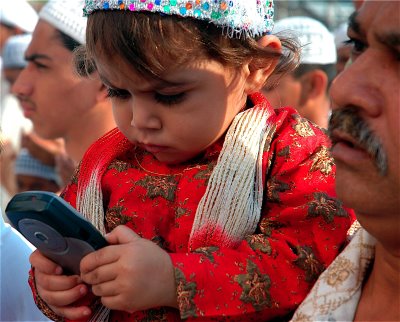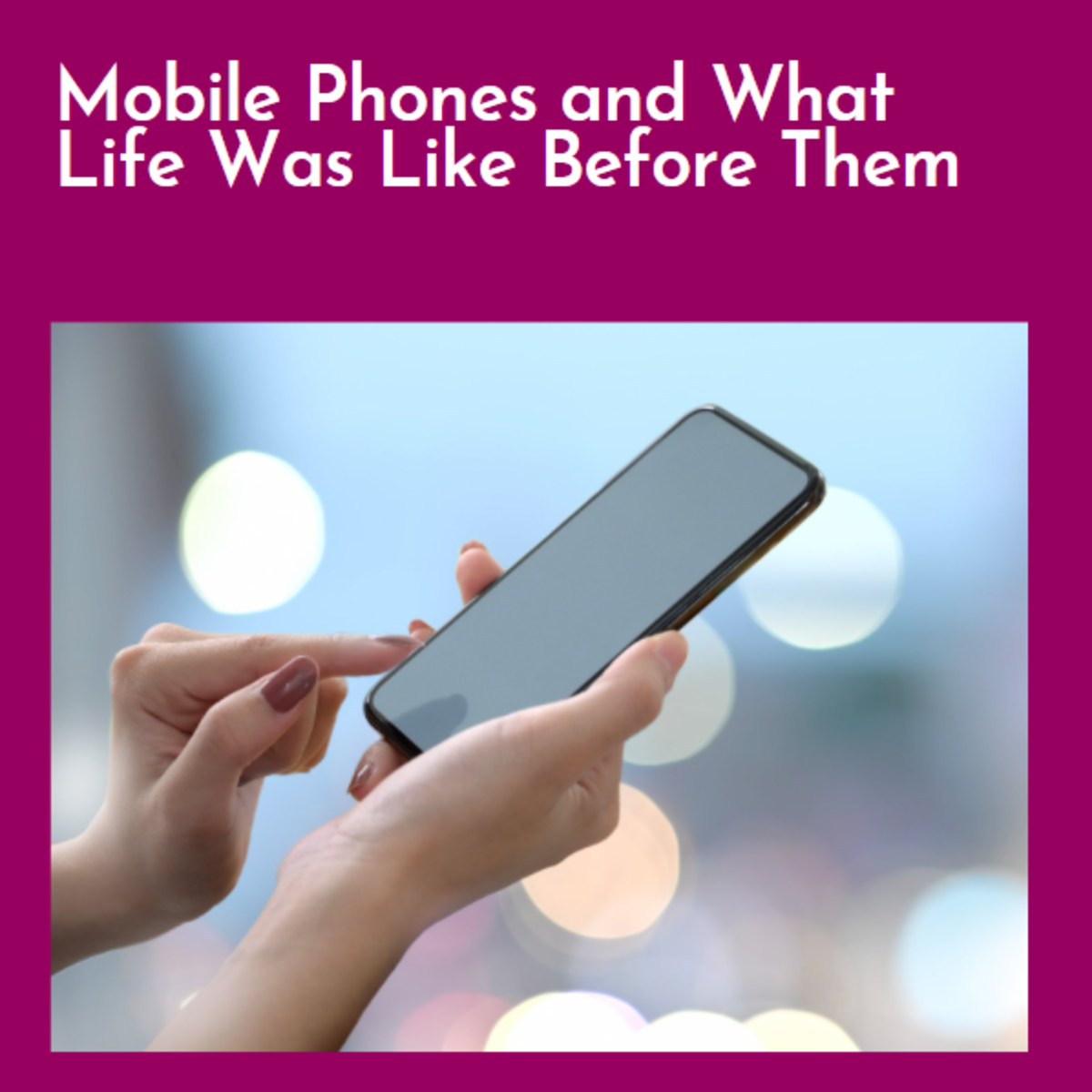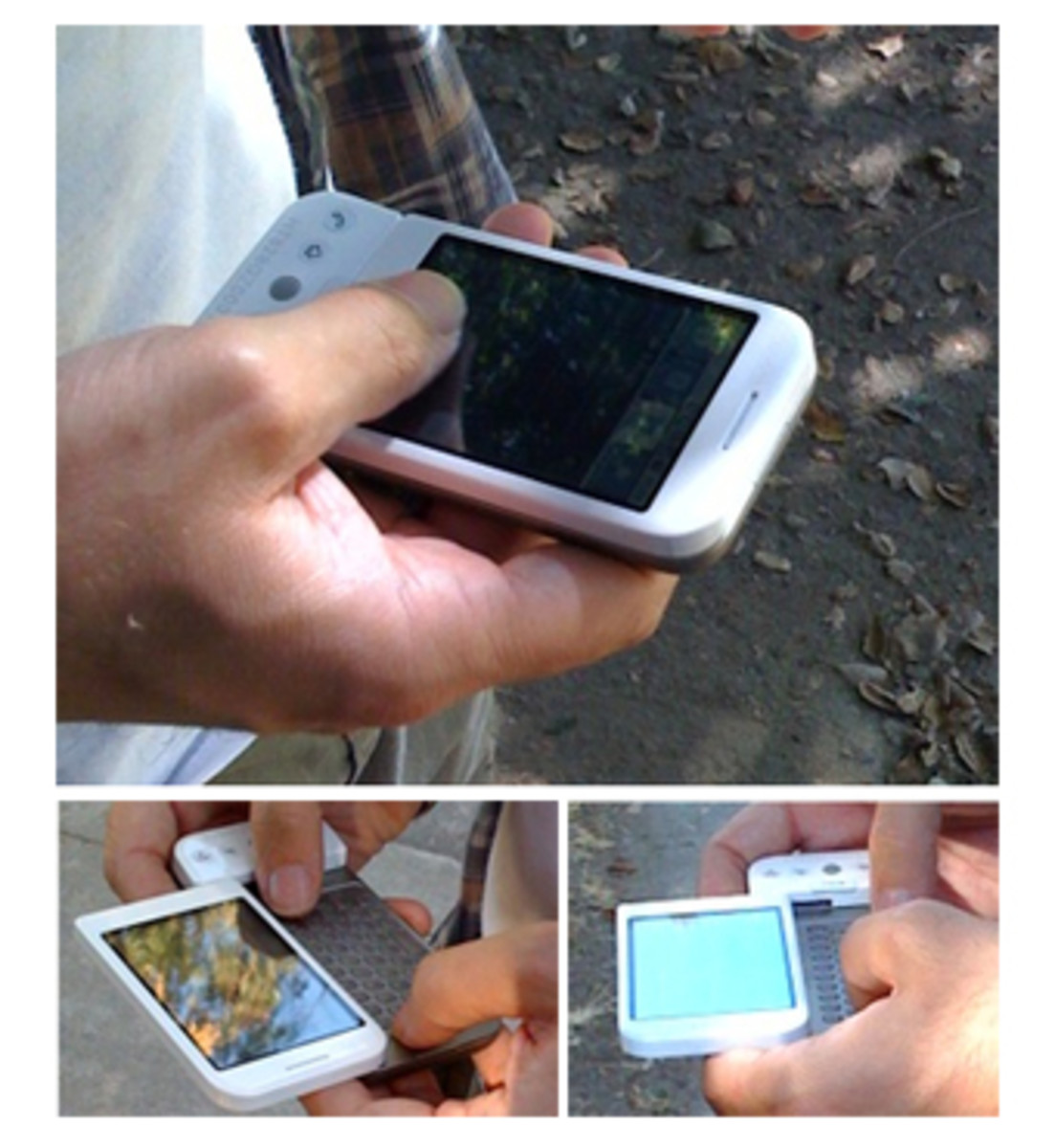Mobile Phone For Your Child-Boon Or Bane?


Kids and Cellphones
Cell phone users are growing every minute in every part of the globe and the user is getting younger. The cell phone and service provider advertisements are increasingly being targeted at the children, teens and young adults. European governments have cautioned parents about the health hazards children face with the use of cellphones before they are16. But, countries like Britain, already have half their children using mobile phones and the number of users between ages 4-9 is fast increasing. Cell phone manufacturers are now targeting this age with friendly colourful mobiles with only 4 buttons and of up to 20 phone numbers to be stored. Parental controls and GPS locator are added features.
The very reason you are going through this hub is probably because you have to make an important decision, whether your child is ready for a cell phone of her own. Well, let us weigh the pros and cons of giving her one.
At what age are kids ready for their own cell phone?
At what age do they really 'need' one?
Every child, whatever the age-toddler, tweens, teens, today wants a mobile phone. Tweens and teens see the use of a cell phone as becoming independent and flaunting it as a status symbol, in addition to keeping up with the peers. A toddler or a preschooler just wants to imitate what adults do. But, it is more the parent who seems to want to know what the child is up to and also keep up or one step above their friends.
So, how useful is it going to be? Schools have banned the use of mobile phones as it is a constant source of distraction among students, whatever the age. Some teenagers have even cheated on tests using cell phones. Parents arguments that they need to know what their child is up to, does not hold water because the student is not permitted to use it during school hours. So, having one does not serve any purpose. If your school allows the student to bring a cell phone but makes it mandatory that it be put on silent mode during school hours, then probably you could know whether your child reached her swimming or music lesson after school. If a regular transport has been arranged for your child, it hardly matters whether he has a cell phone or not. Yes, in times of emergency, such as school leaving early or a basketball session finishing late, it would help you as parent make necessary alternate arrangements for transport. It is this sense of security, safety and convenience, most parents give in to the plea of a mobile phone for their child. A phone with GPS is seen as a must for some parents who want to know their child's whereabouts at any given time.
Of course, the child will argue that he would like a mobile phone because his friends have it, he can keep in touch with them and collect missed homework.
Some parents see the need to give their little one a mobile phone if she is allergic to something or asthmatic, or going on a school trip.
The Cons of Giving Your Child A Mobile Phone
The safe, convenient way to constantly be in one-button touch communication gives a parent the sense of security concerning the child. But, if the child is under 12, he should be under the supervision of an adult at all times anyway. And in most cases, the child would know how to use a regular phone or the cell phone of the one who is supervising.
Researchers have often cited cell phone usage as being hazardous to health, more so in the case of children. The ongoing research suggests that the more one spends time on one's mobile phone, electromagnetic radiation emitted can be the cause of Alzheimer's disease, brain tumors, cancers ,etc. The developing tissues of a young child can be affected, but the more recent studies show that there is no connection between radiation from cell phones and brain cancer. Well, the debate is still on, and it is certainly beneficial to limit the use of a mobile phone, whatever the age. Children have been seen to be impulsive if they are allowed the use of a cell phone, according to a recent study. Because of the texting on cell phones, they learn to quickly retort/reply. These children are seen to be faster in IQ tests, but very inaccurate, since messaging between peers makes them quicker-on-the-draw, but without time for ample thought. SMSing friends takes up most of their time and most teens and tweens are losing sleep texting away into the night. Spellings take a back seat as well, since they learn to use shortcuts in messaging away to friends.
Increased independence gives children the courage to skip more time from family life. They also learn to be totally dependent on a mobile phone, which comes to light when the said phone is either lost or confiscated. Depending on whether the phone is internet enabled, you will be exposing your child to unwanted MMS , youtube videos, emails from spammers, or simply calls from unwanted tricksters.
Which brings us to the subject of MONEY
Cell phones can be expensive. Your child may not agree to what you show her- a basic cell phone to make and receive calls. You will have to talk to her first in order to know what exactly she wants and why she "needs" it, before you even agree to purchase one. Talking to her friend's moms or the teacher can give you a benchmark.
A basic plan for your child's cell phone can be a good thing until you are hit by extra charges for those additional "awesome" ringtones, textmessaging, internet usage,and of course additional talktime. So, it certainly pays to have a good talk with your child before you settle on buying a mobile phone on the do's and don'ts as well. Some kids get into the habit of losing their cell phones often when they know their parents will replace them without a whimper, simply because the latest model has arrived in the market.
Most parents realize that the cell phone is mainly used for SMSing, downloading games, ringtones,and music videos which can be an additional burden on the family budget. So, are you up to it? And of course, as time progresses, they are busy messaging friends or speaking to them, even during family outings. I have seen mothers admonishing their teenagers busy on their phones in restaurants and in shopping malls and worse, they turn a blind eye and a deaf ear to their surrounding which can be detrimental, particularly if they are driving or about to be accosted by strangers. Many accidents happen and unwanted injuries take place because a teenager ignores warning signals as he is busy talking on the phone. Thieves love to snatch the trendiest of cell phones even as you speak, so beware of flaunting it in public. Cell phone etiquette is important, an should be taught to your child as well. Excusing oneself to take a call, ignoring a prankster and reporting him to the parent or teacher, and never be party to pranks themselves. What is good and what's not is to be dealt with by the concerned parent, before it gets out of hand.
Cell phones also put your child at risk for getting in trouble for:
- sexting - sending or receiving nude pictures
- prank calls - which can get your child in trouble if someone starts pranking other people from your child's phone
Best Course Of Action
Each parent has their own views and the schools their children go to, play a big part in whether to give a cell phone to their child or not. A hand-me-down or a new handset is your decision as well, provided your child agrees. You could categorize it into one or a couple of the following.
- a necessity
- a luxury
- a fad
- an invasion
Making the right choice of cell phone is necessary as well-whether you want a basic version to just make and receive calls or one that needs to be internet enabled and with Mp3. Once the decision is made, make sure you know that it is definitely going to cut into your monthly expenses,whether you have a talk with your child or not. So, is your child ready to take on this responsibility and sticking to a basic plan. Or will you need to pay extra for all the additional downloads and textmessaging.
Some points worth considering:
Prepaid monthly plans offer the ability to control exactly how much your child can spend in any given month.
Some handsets offer unique parental controls to monitor and restrict activity which is a good thing.
Some phones also let you limit who can call the phone and who your child can call.
Consider giving the phone only when she is in the shopping mall or on a school trip.
Discuss the do's and don'ts of important issues such as cyberbullying, pranksters, cell phone ettiquette, the dangers of driving while on the cell phone, adhering to the cell phone rules of the school,etc.
If you feel the need, get one that has a GPS locator, so you will know exactly where the child is at any given time.
Stress that there is a responsibility attached which needs to be adhered to, strictly.
Does Your Child Use A Mobile Phone?










